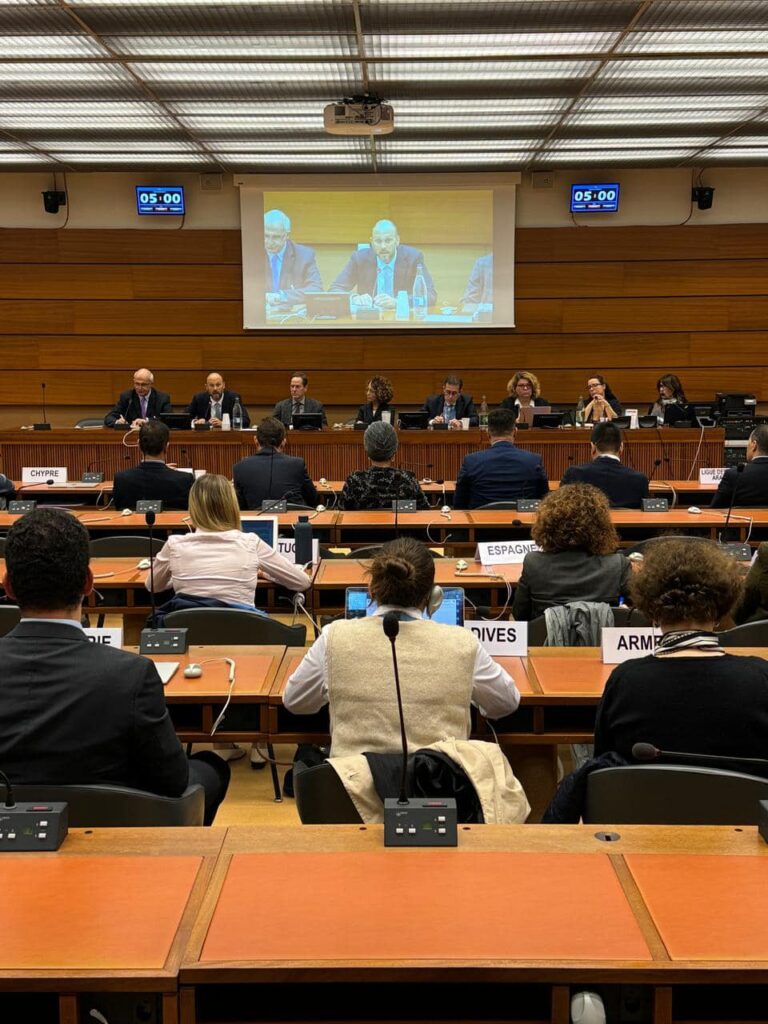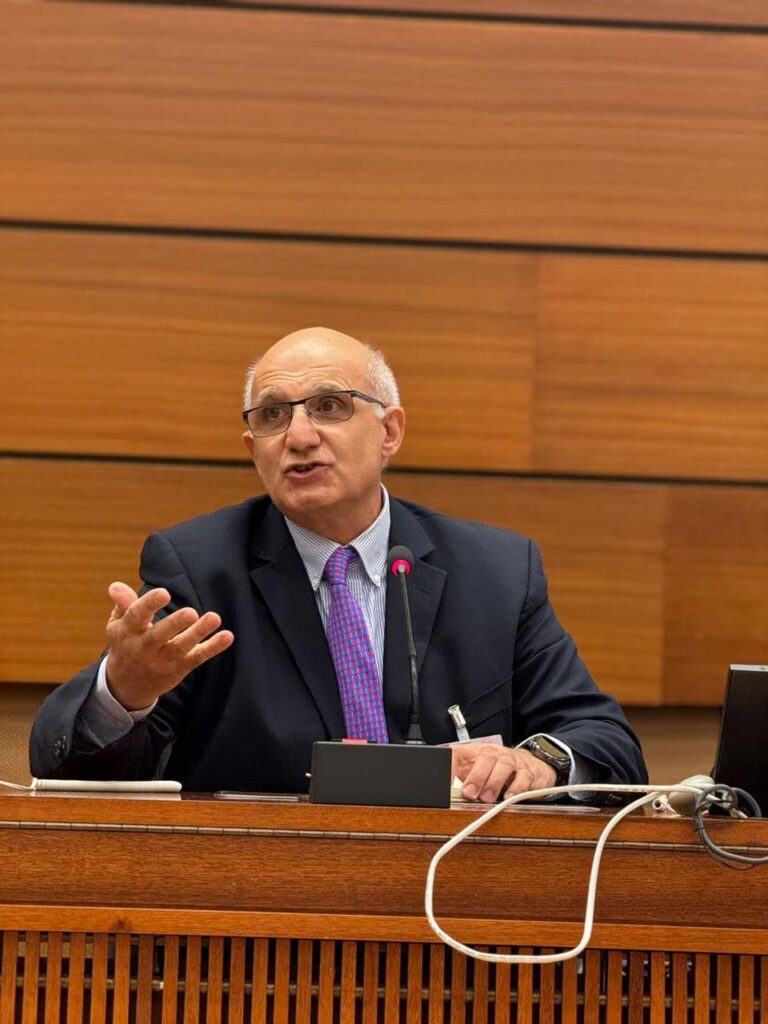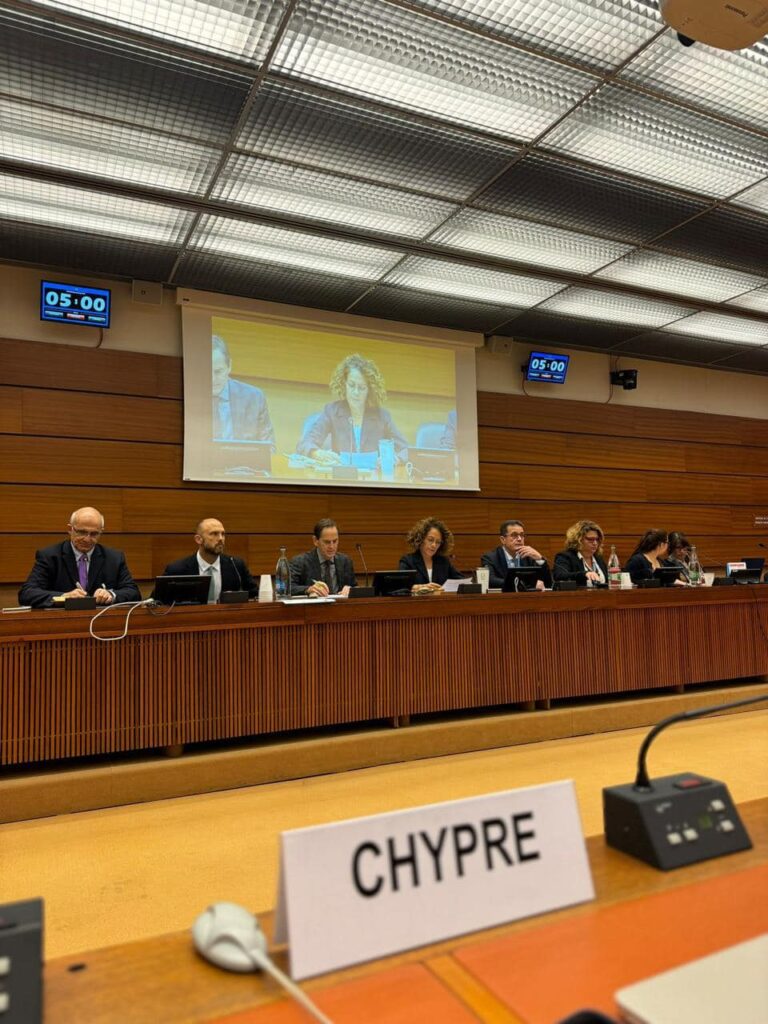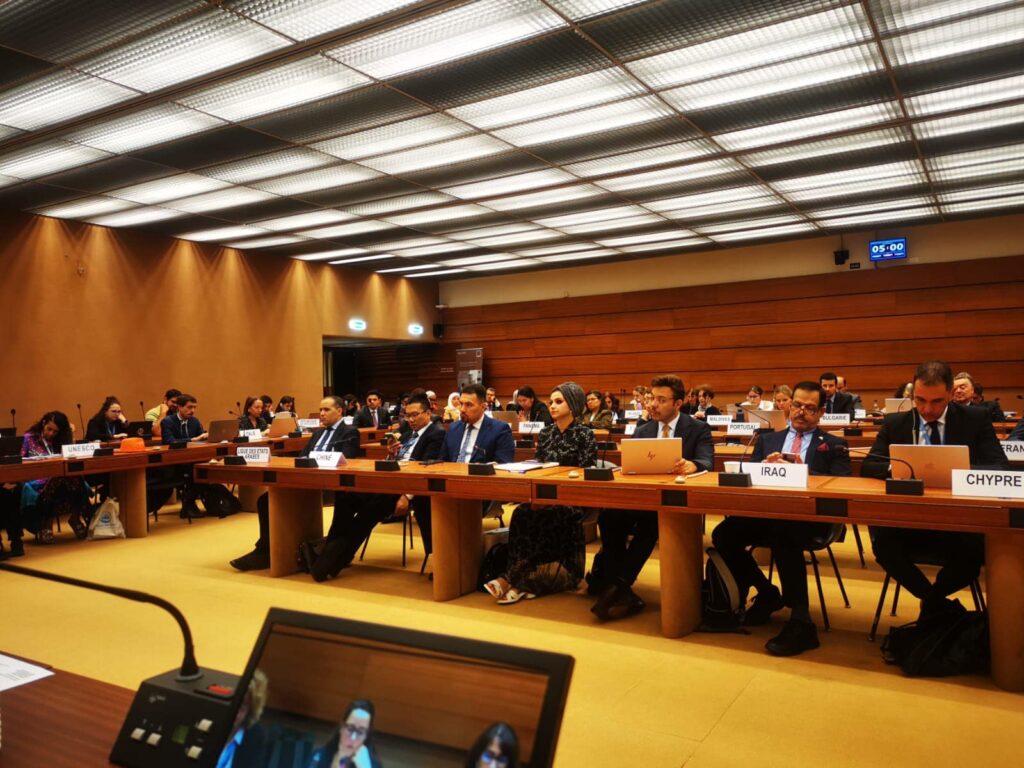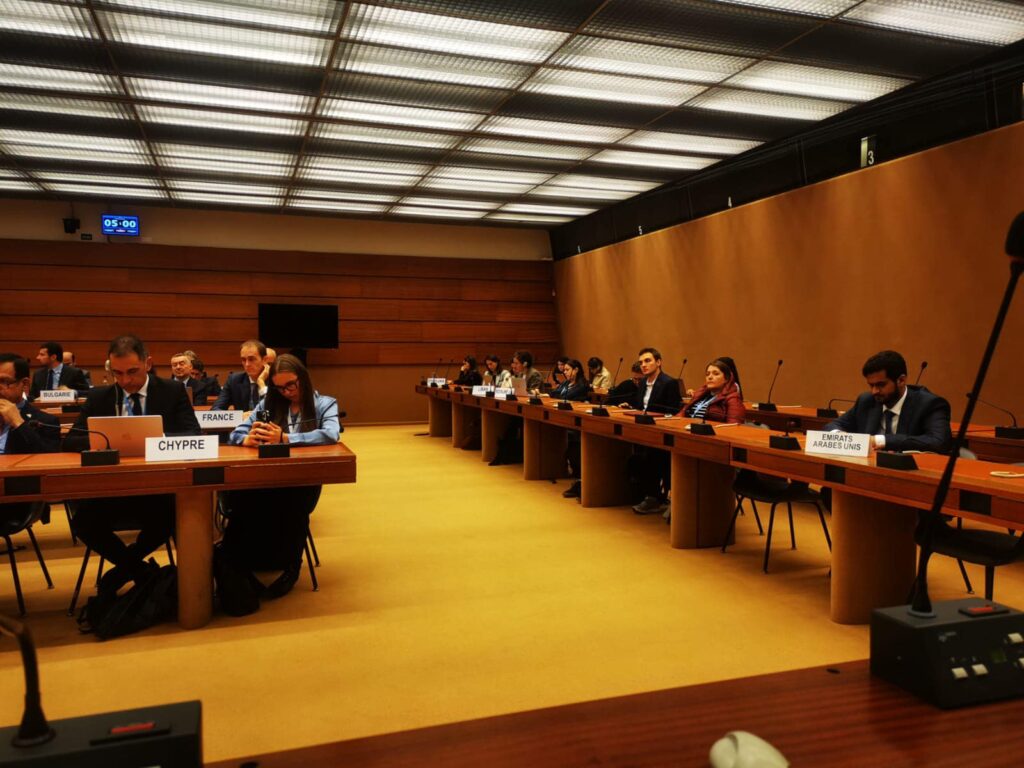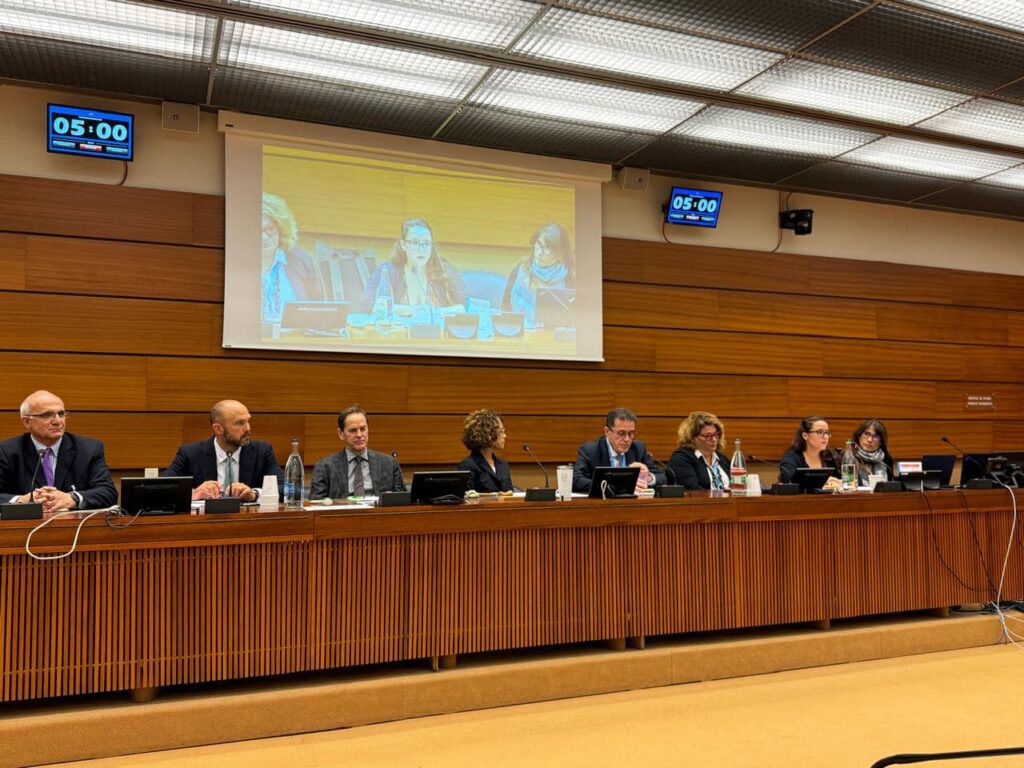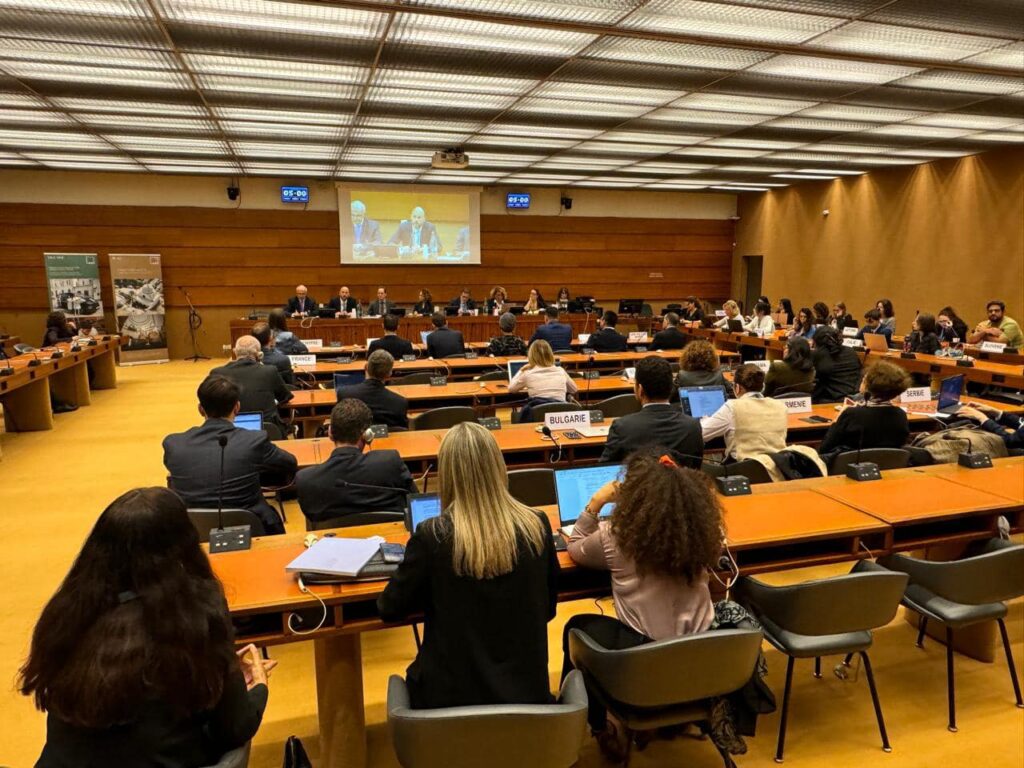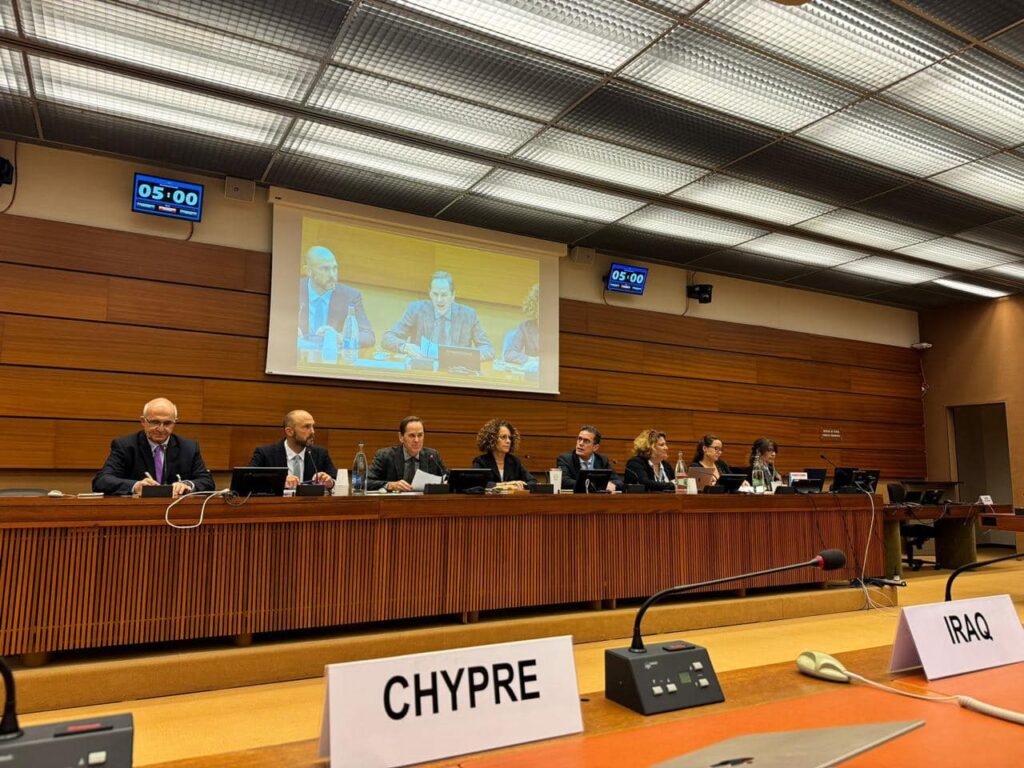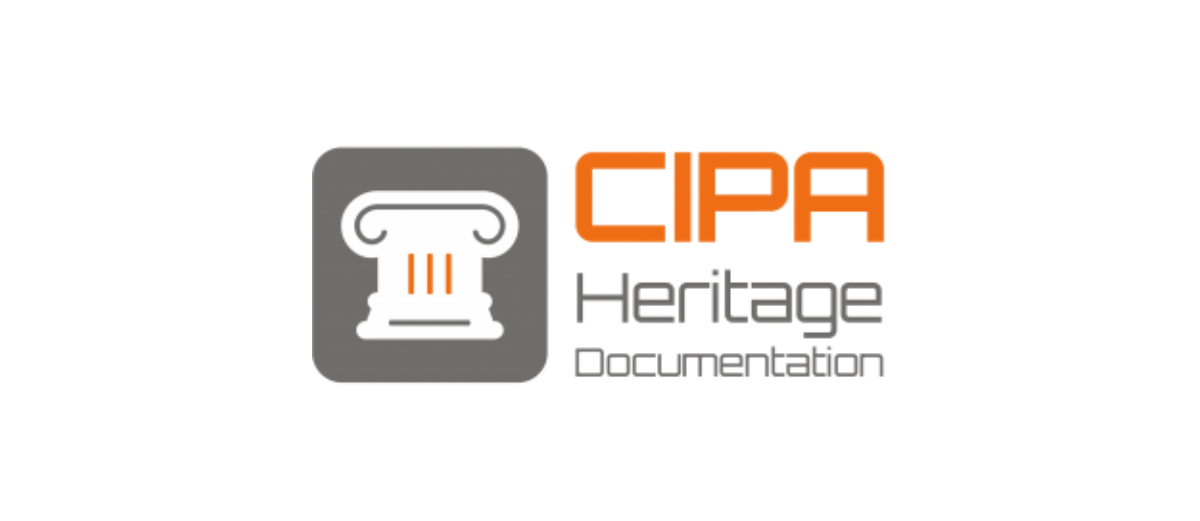We were proud to be part of the side event Digital Cultural Heritage: Opportunities and Challenges in Light of Cultural Rights at the 57th Session of the Human Rights Council in Geneva, held on the 12th of September in Geneva, Switzerland at the United Nations Offices at Palais des Nations. Represented by Dr. Marinos Ioannides, UNESCO Chair holder on Digital Cultural Heritage, and director of the Digital Heritage Research Lab at Cyprus University of Technology, we are exploring critical topics such as the protection of cultural heritage, its challenges in conflict areas, and how digital tools can support the preservation and communication of heritage.
Recognizing the importance of the right of all to access to, enjoy, and participate in cultural heritage for the development of individual and shared identities, for understanding our past and to build resilience, and conscious of the numerous natural or human-derived threats worldwide that may impede broad parts of the population from truly enjoying these rights, work has been developed to explore the ways in which the fast developing digital technologies may provide technical solutions and represent opportunities to better monitor, protect, preserve, restore but also make more widely accessible heritage sites, objects and resources.
The possibilities opened up by the increasing advances in digital technologies are impressive. Digitization of museum collections and documentary archives, virtual and 3D projections of heritage sites of various periods, remote monitoring of inaccessible sites through the use of satellite imagery, are only some of the uses made of digital technologies in the field of heritage.
In this context, it is also important to evaluate the potential limits and cultural rights challenges linked with the use of digital technologies in this field, related with participation in the processes of decision-making about the heritage to be digitized or monitored and who effectively accesses and benefits from it, as well as the broader challenges related with the financial, energetic and environmental costs of preserving digital heritage
